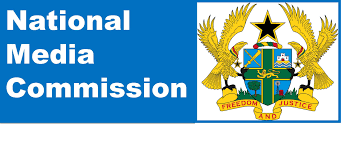Editorial
Let’s respect, appreciate work of fire-fighters
Dear Editor,
Over the years, I have observed how most Ghanaians have treated fire-fighters when there is a fire outbreak, after they have been called to help put off fire to save lives and properties.
It is sad to say that most of these fire-fighters are often treated with disrespect; I find it very disturbing.
I witnessed an incident during the recent fire outbreak in Adum, Kumasi, where a young man tried to attack a fire-fighter for reasons best known to him.
The incident has since gone viral on social media.
As a country, we are all aware of the difficult circumstances under which the Ghana National Fire Service (GNFS) works, a condition people tend to put a blind eye on.
People needlessly chastise them for arriving late to extinguish fire.
There had been a number of issues the fire service faces, such as inadequate fire tenders and other logistics that tend to affect the service they provide.
An uncle of mine, who used to be in the fire service, once told me that most of the fire tenders that were packed at the various fire stations across the country were broken down or not functioning.
Aside the fact that most of the fire tenders were not functioning, access to fire scenes such as markets sometimes become a challenge due to lack of space for tenders to navigate through.
With all these challenges, it becomes unacceptable for Ghanaians to attack fire-fighters during fire outbreaks. What we tend to forget is that most of these firefighters put their lives at risk in trying to put off fires and some of them even get burned and sustain various degrees of injuries in the process.
While I call on Ghanaians to desist from such an act, I would also like to appeal to the government to adequately resource the Ghana National Fire Service to ensure that the security agency works effectively to protect lives and properties.
Also, there is the need for the country to look at how markets are constructed to ensure that there is easy access to them in case of emergencies such as fire outbreaks.
Lilian Osei
Editorial
NMC must enforceguidelines to protectviewers, especially minors

Dear Editor,
I WRITE to express my growing concern about the increasing display of adult content on some television stations in the country.
These programmes, often aired during hours when children are most likely to be watching, pose a serious threat to their moral development and general well-being.
Television remains one of the strongest influences on young people, and stations have a responsibility to ensure that their content reflects the values we seek to instil in our society.
Unfortunately, some channels appear to prioritise sensationalism and profit over public safety and decency.
Such content not only exposes children to material they are not prepared to process but also undermines parents’ efforts to guide their behaviour.
I call on the National Media Commission (NMC) and other regulatory bodies to intensify monitoring and enforce stricter guidelines to protect viewers, especially minors.
Broadcasters must be reminded of their duty to promote responsible and wholesome programming.
Our airwaves should uplift, educate, and inform — not endanger the moral fabric of the next generation.
Eugene Ampiaw,
Accra
Join our WhatsApp Channel now!
https://whatsapp.com/channel/0029VbBElzjInlqHhl1aTU27
Editorial
Balancing faith,discipline at Wesley Girls SHS
Dear Editor,
I AM writing to share my thoughts on the ongoing issue at Wesley Girls’ Senior High School, which has attracted national attention after the Deputy Attorney General released a statement in court.
The matter is about whether Muslim students are being denied the right to freely practice their religion, and whether they are being compelled to follow practices that go against their faith.
To me, this is not just a legal issue but a question of fairness and respect in our schools.
While the Constitution guarantees every student the right to practice their faith, schools also have traditions and rules that must be respected. As the saying goes, “When you go to Rome, you do what Romans do.” If a teacher is teaching, it is not right for a student to suddenly leave for prayers. That disrupts learning.
Instead, schools should provide a clear time and place for worship, so that students can honour their faith without disturbing academic work. There is time for everything; time to learn, and time to pray.
Wesley Girls SHS can continue to uphold its Methodist heritage while also respecting the rights of Muslim students.
This compromise will protect unity and ensure that our schools remain places of both discipline and inclusion.
Princess Wonovi
Accra
Join our WhatsApp Channel now!
https://whatsapp.com/channel/0029VbBElzjInlqHhl1aTU27






